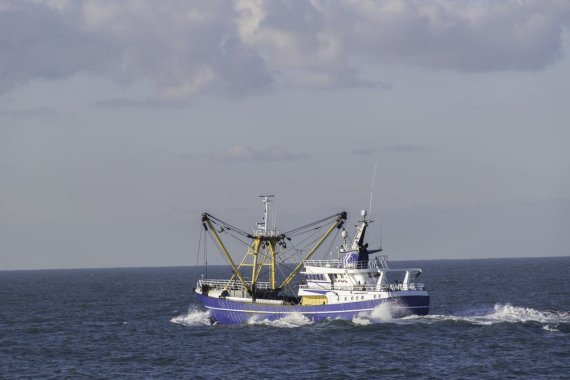Such a ban would have serious consequences for the Dutch fishing sector, Wim Zaalmink and his colleagues at Wageningen Economic Research conclude. Five questions on this ban.
In early 2018, the European Parliament voted for a total ban on pulse trawl fishing: fishing using electrical impulses. In the next few months, the exemption permits for Dutch fishermen will expire. The total ban may then become definitive.
You carried out research commissioned by the Bestuurlijk Platform Visserij (Dutch Administrative Platform for Fisheries). Is this a final attempt by the sector? How do you expect it to develop?
‘I do not know what will happen, but it certainly is a dilemma. If the fishermen have to go back to their old methods, it will be a loss for them. On the other hand, one could also say that the Dutch cutters have enjoyed a temporary exemption and were allowed to fish using pulses [small electric shocks; ed.], thus giving the sector the opportunity to make a profit for several years, which was absolutely necessary, but which they now have to hand in again. However, it is very painful to see that innovative developments are being undone in this way.’
Have the fishermen perhaps taken too much of a risk by switching to this method?
‘The fishermen did not switch from one day to the next. This method was already well‑developed at that time. In that period, around 2012, many fishermen had heavy involved financial issues, partly due to the high fuel prices and low fish prices. By switching to pulse, they were able to at least play even. In addition, environmental aspects were considered as well, because this method disturbs the seabed to a much lower degree, and the CO2 emissions from the pulse trawlers are lower too. We really thought that pulse fishing would become the fishing method of the future. And the fishermen did not see a ban coming at all, because there were no signals of one whatsoever.’
How severe would the consequences be for the fishery if that ban comes about?
The income of the fishermen and crew is closely related to fuel and fish prices, both of which are currently not unfavourable, but a switch would mean that the Dutch fleet would annually earn 8.7 million euros less, and if we use the unfavourable price levels of 2013 for this calculation, it would even amount to 21.5 million euros. That would mean that at least half of the cutters will face financial problems and will eventually go bankrupt. Furthermore, the fishing industry has invested a great deal in pulse innovation in recent years and consequently a lot less in other methods. In addition, fishermen are likely to lose the crew. Most crew work through entrepreneur constructions, which currently earns them reasonable money, but if that were to change, the interest in the Netherlands to work in the fishing industry would most probably take a dive. There would be a good chance that the traditional Dutch fishing sector will shrink.’
Do any Dutch fishermen support a total ban?
‘There is always division to some degree, and the same goes for the Dutch fishing industry. For example, small-scale fishery is unconvinced of the advantages of pulse fishing. And they cannot use it, as they fish using different types of gear and close to the coast. If one considers the quality of fish, I’m unsure whether pulse fishing is better or worse. But small-scale fishery has the general public’s sympathy. I understand that, but we also need other sustainable methods if we want to sustainably feed the world’s population.’
Is there a lesson to be learnt here?
‘As researchers, we are used to look at details, but it is also important to take a wider view and be aware of what is going on in the world and consider such aspects as political climate, environmental organisations and public opinion. As a knowledge institution, we are engaged in innovation, and we do that from the assumption that it should help everyone. In this case, the hard part is that scientific arguments prove to be insufficient and that we have to reverse innovative developments.’

 Photo: Shutterstock
Photo: Shutterstock